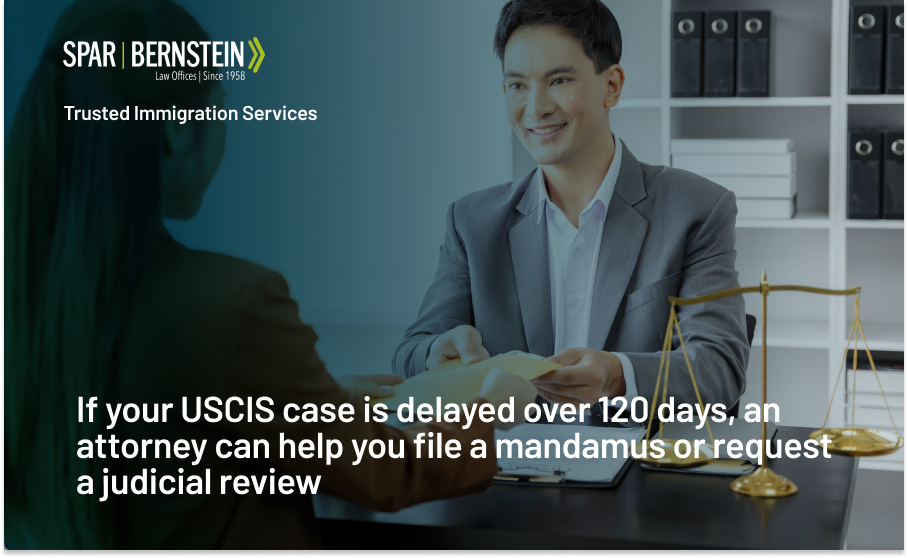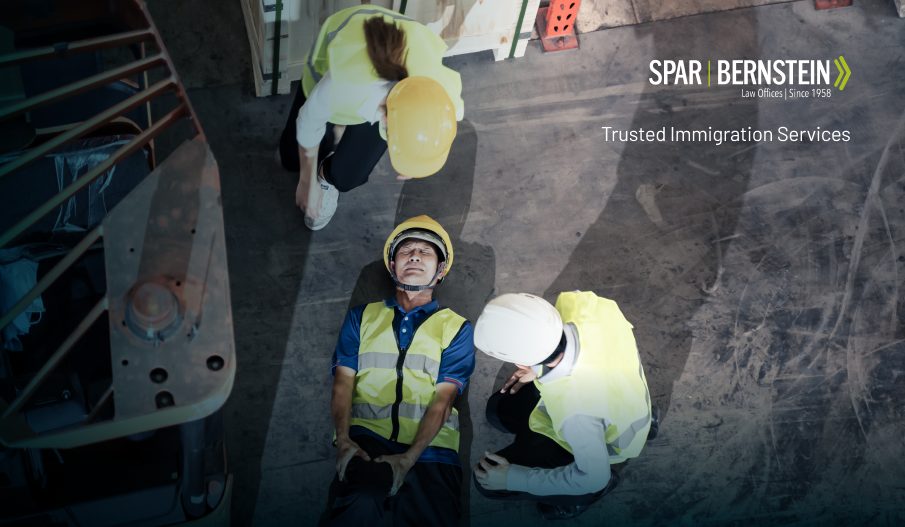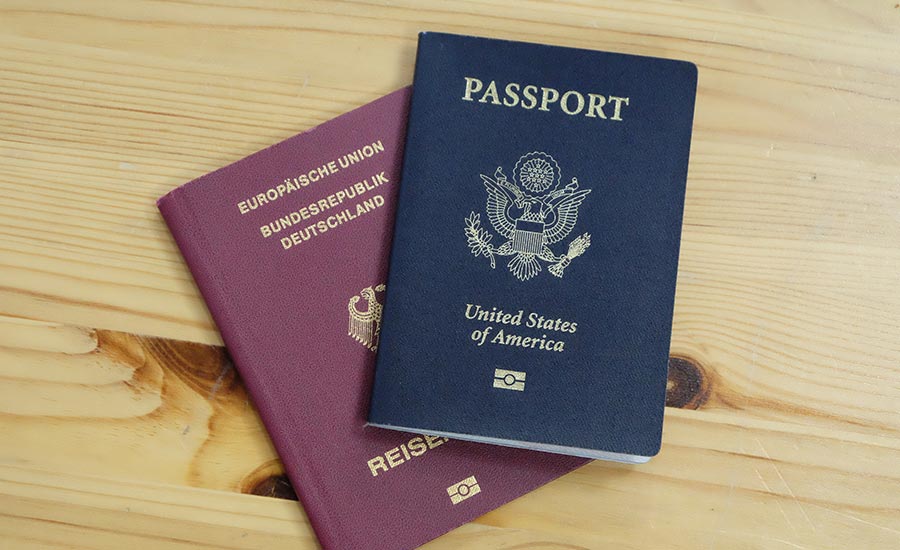

How Long Does It Take USCIS To Review A Case After An Interview: Key Takeaways
- The U.S. Citizenship and Immigration Services (USCIS) will typically decide on your application within 120 days after your interview
- If the process is delayed longer, you can file a mandamus to push USCIS to act upon your case or request that the U.S. Federal District Court in your area review your case
- In rare cases, USCIS might agree to expedite your application; however, they aren’t legally obliged to do so
- After an interview, your case can be approved, denied, or continued due to a lack of information on your eligibility
The interview is an important step in many immigration processes, from naturalization to marriage-based Green Card.
If you’re already past this stage, you may be wondering: How long does it take USCIS to review a case after an interview?
We’ll explain:
- The typical timeline for a USCIS decision
- What to do if your case is taking longer than expected
- The possible outcomes after your interview
Our attorneys at Spar & Bernstein will guide you through it!
How Long Does It Take USCIS To Review Your Case?
After an interview, depending on your case, the USCIS typically comes up with a decision in 30 to 120 days.
In some situations, your case may take longer. This can happen due to various reasons that are not directly associated with you, such as background check delays, workload at USCIS offices, internal case transfers, or national security reviews.
For more insights, watch the video below, where Brad Bernstein, managing partner at Spar & Bernstein, talks on the topic.
(How) Can You Expedite USCIS Decision After An Interview?
Although there is no law compelling USCIS to process your application faster, requesting expedited processing may be possible, in some cases.
Such situations include:
- Emergency situations that require you to become a citizen quickly, such as a serious illness needing treatment
- Severe financial loss to you and your business if your case is delayed, such as the expiration of your Supplemental Security Income (SSI) benefits
- Humanitarian reasons such as a war
- Denial of a past application or delay of a current application, due to mistake
- A request by the Department of Defense or a government agency to expedite your case as a matter of national interest
To request expedited processing:
- Send a letter to your local USCIS field office
- Call the USCIS Contact Center
- Contact a trusted immigration lawyer at Spar & Bernstein
Note that it is your responsibility to provide evidence supporting the reasons for your request, and that it is entirely up to USCIS to agree to speed up your application, or to deny your request.
To decide if a request for expedited processing is possible or worthwhile in your situation, contact our experienced immigration lawyers at Spar & Bernstein.
What To Do If Your Case Takes Longer Than 120 Days
If your case takes longer than 120 days, you may:
- File a mandamus
- Request a judicial review of your application by the US Federal District Court in your area
Filing A Mandamus
Still waiting after 120 days? You may be eligible to file a mandamus, a legal tool that compels USCIS to finally act on your case.
A mandamus is filed with the court. In this case, the judge will not review your application but will order USCIS to make a decision.
Filing a mandamus involves complex legal steps best handled by an attorney familiar with federal immigration litigation.
Requesting A Judicial Review
If USCIS does not act upon your case after your lawyers have filed a mandamus, you may request a judicial review of your application by the Federal District Court where you live.
Based on the court’s findings and the applicable laws and regulations, the court may:
- Approve your application.
- Deny your application.
- Send your case back to USCIS so they can decide on your case.
Take into consideration that involving the Federal Court would heavily depend on the circumstances and facts of your individual case.
Not every delay qualifies for court action: a judge will only review your case if USCIS has unreasonably failed to act despite being legally required to make a decision.

What Results Can You Expect After A USCIS Interview?
Depending on what came up during your interview, here’s what might happen next.
Your Case Is Approved
If your application is approved, USCIS officers will conduct internal procedures to re-verify your approved application. The re-verification officer is different from the officer who conducted your interview. They cannot change the outcome, but they may raise questions related to your eligibility.
If USCIS doesn’t find any problems during the re-verification process, they will notify you of the next step in your case.
This can be scheduling an Oath of Allegiance ceremony for naturalization applicants or approving your Green Card after a marriage interview.
If the re-verification process finds that you are not eligible, USCIS may deny your application or ask for more documents.
Your Case Is Continued
Your case is continued when USCIS needs additional information, or you have failed a part of your citizenship test during a naturalization interview.
If your case is continued, you will be asked to provide additional evidence or be scheduled for a subsequent re-examination.
If you receive a written Request for Evidence (RFE), you will typically have 30 days to provide the information required.
The Request for Evidence will include information about:
- The specific information or documentation you must provide
- How to respond
- The time in which you must reply
If you submit the requested evidence on time, USCIS will decide on your eligibility. In case you don’t meet the deadline, USCIS will make a decision on your application based on the evidence they have.
Your Case Is Denied
Your application can be denied if you:
- Do not meet all eligibility criteria for your case, for example, the financial, relationship, or residency criteria tied to the application you filed
- Are placed in removal proceedings
Your written denial notice will provide information about:
- The facts on which your application was denied
- The eligibility requirements you failed to meet
- How you can request a hearing on the denial
The most common grounds for denial of your application include missing documents, not meeting financial requirements, errors on your forms, failure to prove a bona fide marriage, or having certain criminal or immigration violations.
If your application is denied, you can accept the decision of USCIS or appeal the decision.
Have Questions About USCIS Case Review Timelines? Spar & Bernstein Can Answer Them
Waiting for your results after an interview can be extremely nerve-racking. Delays after the normal processing time can cause additional frustration and increase feelings of anxiety and uncertainty.
Our trusted immigration attorneys at Spar & Bernstein will dig into your case details so you don’t have to go through the process alone.
For over 60 years, we have worked with thousands of people needing help in various immigration law spheres, including citizenship and naturalization, family immigration, employment immigration, DACA, and asylum and refugee protection.
We have helped over 10,000 clients obtain immigration benefits and successfully resolve their cases across the U.S., including people in Los Angeles, Boston, and Austin.
If your case is delayed after your interview, we will:
- Research your case.
- Communicate with the authorities regarding your application.
- Draft and file a mandamus to push USCIS to speed up their decision on your case.
- Represent you in court, whether you are challenging a delay through judicial review or appealing a denied application.
- Prepare any additional documentation you may need.
How Long Does It Take USCIS To Review A Case After An Interview: FAQ
Why was my case continued after the interview?
USCIS may continue your case if they need more documents, clarification about your eligibility, or if you missed part of your exam during a naturalization interview. You’ll receive instructions on the steps you need to take and how long you have to respond.
What should I do if my case is denied?
If your application is denied, you will receive a notice explaining the reasons. Depending on your situation, you may request a hearing, file an appeal, or reapply. Working with an immigration attorney can help you determine the best next step.
Can USCIS give a decision on the same day as the interview?
Yes, in cases with straightforward applications, USCIS officers may approve your case at the end of your interview. However, most applicants will typically need to wait several weeks or months to get an official notice.
How can I check the status of my case after the interview?
You can track your case online using your 13-digit receipt number:
- On the USCIS case status portal
- By calling the USCIS Contact Center
- By scheduling an InfoPass appointment
Can background checks delay my case after an interview?
Yes. USCIS runs background and security checks on all applicants, and if they need additional information, this can delay your case even if your interview went well.
Disclaimer: attorney advertisement. prior successful results do not guarantee a similar outcome.





